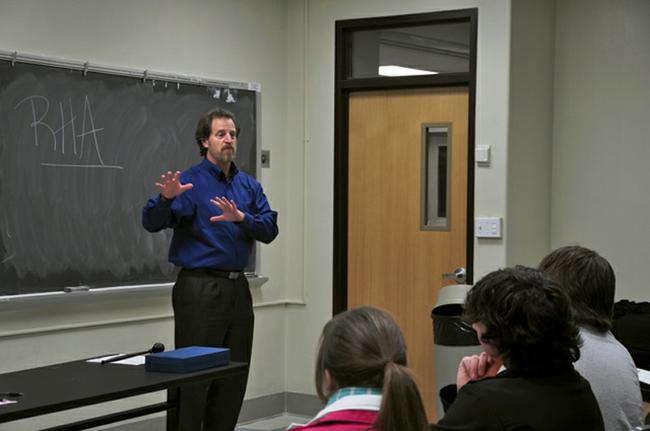The Residence Halls Association convened Monday for the first time this semester to hear from Residential Life about capacity constraints in residence halls and to discuss its upcoming presidential election.
Director of Residential Life Frankie Minor approached RHA with concerns about availability of rooms on campus next year for upperclassmen.
“Next year’s freshman class is the largest in MU history,” Minor said. “The challenge is that we have the lowest overall capacity in years.”
Mark Twain Hall was closed at the end of fall semester and will remain closed all of next year. Next spring, Johnston Hall will also close for renovations.
With more and more students receiving acceptance for the 2012-13 school year and current lack of on-campus housing, space is quickly becoming scarce for students who wish to remain in the residence halls after their freshman year.
In the past when there were not enough rooms to house sophomores, juniors and seniors, Residential Life used a system of seniority to grant housing to non-freshmen. Minor asked the RHA representatives during the meeting if they approved of the current system or if changes needed to be made.
The representatives spent more than an hour deliberating on a fair method to distribute housing to older students. Several argued that upperclassmen have already adjusted to college life and therefore do not need the stability and community of a residence hall. Priority, then, should be given to returning second-year students.
Erin Morris, RHA Events and Planning Committee chairwoman, said she was in favor of maintaining the old system of seniority.
“Using sophomore priority would mean disenfranchising the juniors and seniors wanting to live on campus,” Morris said. “It would mean not tending to a lot of students’ needs.”
Others argued the only fair way to award housing is to use a completely randomized lottery system. This idea was quickly turned down in favor of a less random and more selective method.
“Mizzou has always used a priority, not a lottery, system,” Morris said. “It may work for other schools, but it could never be popular here. Keeping seniority is the best system.”
Still, other representatives suggested a sort of merit system when assigning housing. Students with the highest GPA or with the most on-campus involvement deserve the housing more than students with a low GPA or little involvement. But Minor said it would be very difficult to measure campus involvement, especially when Residential Life only has two weeks to figure it out.
The vote came down to four options: keep the same seniority system, use the seniority system with a quota for each class, use a reverse seniority in which sophomores receive priority or give housing to the first 1,200 upperclassmen who sign up.
After narrowing the choices down to seniority-quota and reverse-seniority, a second vote showed that the representatives preferred the reverse quota system. If Residential Life goes through with this method, they will allot 67 percent of on-campus housing to freshmen, 20 percent to sophomores, 10 percent to juniors and 3 percent to seniors.
Following the housing vote was a discussion of the 2012 RHA presidential election guidelines, submitted by Communications Committee Chairwoman Brianna Petersen. The rules remain unchanged from last year and candidates are allowed to start campaigning this week.
The election will take place online Thursday, March 1, and all students living in a residence hall are eligible to vote.








